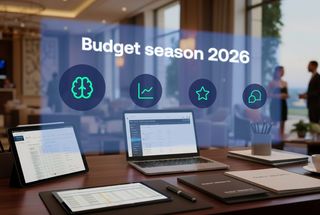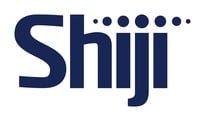Budget Season 2026: Why guest data is your most valuable planning tool


As budgeting season rolls around, it’s easy for hoteliers to fall back on familiar habits: looking at last year’s numbers, trusting gut instincts, or relying on the usual KPIs. But in today’s fast-changing hospitality landscape, planning in a bubble can lead you far off course.
Your guests are already telling you what matters through their reviews, surveys, and everyday feedback. It’s honest, unfiltered, and often eye-opening. Sometimes it confirms your instincts, and sometimes it challenges them. But most importantly, it points to where your money will make the biggest difference.
The cost of assumptions
Hotel teams frequently plan big-ticket upgrades based on internal conversations or executive preferences, only to find the investment fails to move the needle on satisfaction or revenue. Why? Because what hotels think matters to guests doesn’t always align with reality.
A great example comes from Edwardian Hotels London, a collection of 4- and 5-star properties that leveraged technology to gain deeper insight into guest segments. By analyzing feedback from corporate clients, they uncovered declining satisfaction from a key tech account linked to a lack of public workspaces. Acting on these insights, the team redesigned one of their properties to include more shared workspaces, boosting satisfaction, reinforcing corporate loyalty, and creating new business opportunities.
Take some more examples:
- Decor vs. atmosphere: Management decides the lobby feels outdated. Yet guest feedback repeatedly praises the “warm and cozy” design, asking instead for better lighting. The risk? Spending thousands on renovations that guests didn’t want, while ignoring what they actually asked for.
- Menu vs. service: A restaurant revamp is budgeted to refresh the culinary concept. But guest reviews don’t mention the food, they highlight slow service and inattentive staff. Fixing operational workflows or training may be a fraction of the cost, but with exponentially higher impact
- New amenities vs. operational basics: At one Berlin-based boutique hotel, the team used guest survey feedback to A/B test two different mattress types with recent guests. Once they identified the preferred option, they replaced all mattresses accordingly, leading to a clear uptick in satisfaction scores. Stories like this show that while it may be tempting to invest in eye-catching amenities like a gym, spa, or rooftop bar, guest feedback often tells a different story. By truly listening to what guests value most, hotels often discover that focusing on the fundamentals, such as comfort, check-in efficiency, and housekeeping consistency, can deliver faster and more meaningful improvements in satisfaction and loyalty.
- Price vs. perceived value: Concerned about pricing competitiveness, some hotels drop rates. But data often shows that guests are willing to pay more, if certain experience gaps are addressed. Price sensitivity is often a reflection of misaligned value, not cost itself.
- Tech upgrades vs. tech expectations: While budget lines are approved for smart TVs or in-room voice assistants, feedback frequently points to unreliable Wi-Fi, outdated directions, or lack of digital concierge information. Often, guests just want simplicity and clarity.
These mismatches cost more than budget. They erode guest trust and delay ROI.
Budgeting blind spots: The positivity problem
It’s not just about what guests complain about. Equally valuable are the things they praise.
Imagine breakfast is consistently one of the most praised parts of your guests’ stay. But because it isn’t seen as a “problem area,” it slips under the budget radar. Over time, small inconsistencies start to creep in, and so does negative feedback.
Failing to protect and promote what already delights guests is one of the most overlooked opportunities in hotel budgeting.
As guest expectations shift and attention spans shrink, maintaining consistency in guest-loved experiences, whether it’s a popular menu item, standout staff interaction, or local partnership, is essential. These differentiators should be actively preserved, enhanced, and spotlighted in marketing efforts.
From feedback to forecast: A data-driven budget strategy
Budgeting in a guest-centric world means moving from reactive fixes to proactive insights. Here’s how leading hoteliers are making the shift:
1. Diagnose before you design
Don’t assume. Analyze. Reviewing your guest´s reviews, surveys, and sentiment analytics provide a detailed map of guest priorities. Before allocating capital to high-profile projects, validate that those investments are aligned with guest needs.
2. Identify high-impact, low-cost fixes
Small operational changes, like training front-desk staff, adjusting breakfast hours, or switching vendors, often result in outsized gains in satisfaction and review performance. The highest ROI often comes from these overlooked micro-decisions.
3. Focus on the entire guest journey
Ensure that your budget accounts for improvements across the entire experience: pre-stay communications, on-site service, and post-stay follow-up. For example, if reviews point to pre-arrival confusion or post-checkout frustration, that’s a budget signal, not just a service one.
4. Quantify success through review analytics
Guest feedback tools now allow you to measure the impact of changes over time. Use sentiment analysis and reputation scores to evaluate whether investments are shifting guest perception, and then adjust future spend accordingly.
5. Balance innovation with experience gaps
Emerging technologies and amenities can be powerful differentiators, but only when basic expectations are already being met. Use feedback data to ensure foundational experiences (cleanliness, responsiveness, clarity) are strong before layering in innovation.
Rethinking ROI: Reputation over instinct
Guest reviews don’t just reflect experiences, they predict financial performance.
Hotels with stronger review scores consistently achieve higher occupancy, better pricing power, and stronger guest loyalty. According to data from across the industry, review ratings are directly correlated with revenue outcomes, especially when backed by operational improvements that address guest feedback.
And in a world where budgets are being scrutinized more closely than ever, reputation-backed investment is one of the few strategic advantages that grows stronger over time.
Final thought
Guest feedback isn’t noise, it’s your competitive edge. Every comment, rating, and review reveals what truly matters to your guests. As hospitality evolves, success depends on listening and acting on those insights. Turn feedback into focus, data into direction, and reputation into a strategy that keeps you ahead.
About Shiji Group
Shiji is a global technology company dedicated to providing innovative solutions for the hospitality industry, ensuring seamless operations for hoteliers day and night. Built on the Shiji Platform—the only truly global hotel technology platform—Shiji's cloud-based solutions include property management system, point-of-sale, guest engagement, distribution, payments, and data intelligence for over 91,000 hotels worldwide, including the largest hotel chains. With more than 5,000 employees across the world, Shiji is a trusted partner for the world's leading hoteliers, delivering technology that works as continuously as the industry itself. That's why the best hotels run on Shiji—day and night. While its primary focus is on hospitality, Shiji also serves select customers in food service, retail, and entertainment in certain regions. For more information, visit shijigroup.com.
